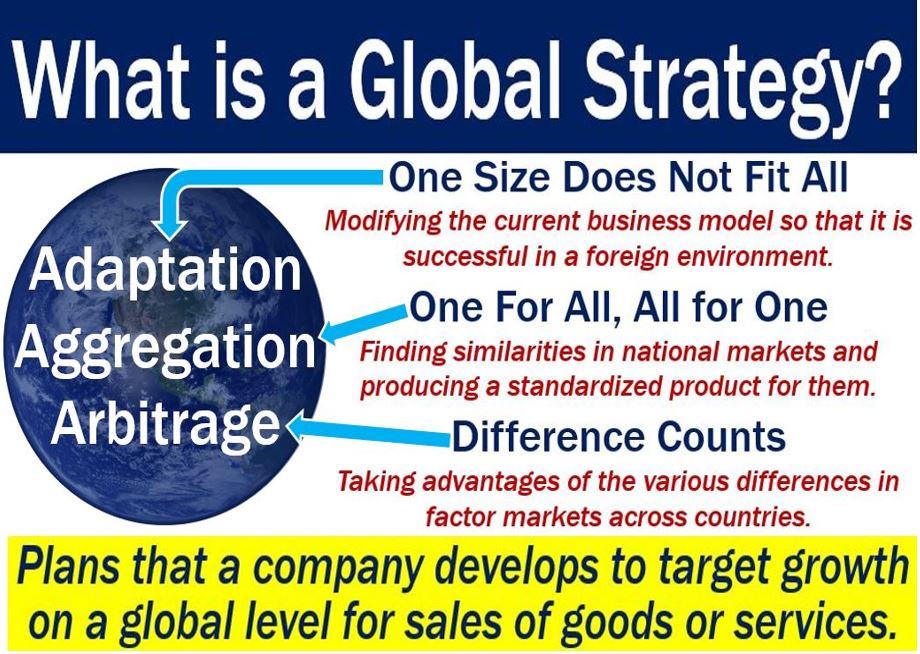A Global Strategy is one that a company takes when it wants to compete and expand in the global market. In other words, a strategy businesses pursue when they wish to expand internationally. A global strategy refers to the plans an organization has developed to target growth beyond its borders. Specifically, it aims to increase the sales of goods or services abroad.
‘Global strategy’ is, in fact, a shortened term that covers three strategies: international, multinational, and global. Companies must pursue strategies in those three areas if they wish to expand internationally.
Global strategy – some confusing terms
When reading about the international marketplace, there are many terms that people initially find confusing. For example, what is the difference between international, multinational, transnational, and global?
International
An international company is one that imports and exports. In other words, it sells to customers abroad and has foreign suppliers.

Multinational
A multinational company, unlike an international one, has investments in other countries. It has business, staff, and premises in more than one country.
However, it does not have coordinated product offerings. A multinational company focuses more on adapting its products and services to individual local markets.
Global
A global company has investments and is present in several countries. It markets its goods or services through the use of an identical coordinated image/brand in every market.
In most cases, there is one corporate office that is responsible for worldwide strategy. There is also a strong emphasis on cost management, efficiency, and volume.
Transnational
A transnational company operates in different countries. It has investments in operations both at home and abroad. However, the directors/managers at each individual market are also the decision-makers for their regions.
Additionally, local management decides on R&D and marketing policies and strategies for their territories. R&D stands for Research and Development.
Transnational companies are significantly more complex organizations than the other three types.
Global strategy – a term we commonly misuse
Understanding the nuances of a global strategy is crucial for any business looking to optimize its operations and market presence on an international scale.
This strategic clarity is essential for aligning cross-border business activities with the overarching corporate vision and maximizing global market penetration.
The World Health Organization has a Global Strategy for Women’s, Children’s and Adolescent’s Health. It envisions a world in which every adolescent, child, and woman realizes their rights to mental and physical health and well-being. It also aims for better social and economic opportunities.
